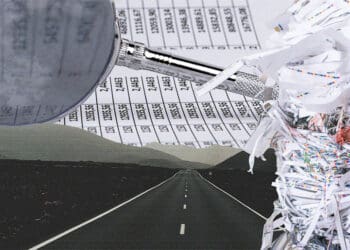An update on the recent international activity of the Serious Fraud Office (SFO)
with contributing authors Michelle Mizutani and Richard Sharpe
The SFO, the agency principally responsible for prosecuting cases under the UK Bribery Act 2010 (UKBA), has received its fair share of criticism for being perceived to lack the prosecutorial zeal displayed by the U.S. Department of Justice (DOJ) in relation to the Foreign Corrupt Practices Act (FCPA). Developments in 2014 may indicate that this is about to change, however.
The UKBA passed into law on July 1, 2011, inciting a compliance frenzy within British connected corporations, particularly those operating in the Asia Pacific and China region. Justifiably concerned that the SFO’s enhanced investigating and prosecutorial powers would lead to the same aggressive approach as that taken by the DOJ, companies were even more concerned by the vast scope and reach of the UKBA. Now facing strict liability for the conduct of their partners and agents, in both the public and private sectors, regardless of geographical location, companies expected to see a firestorm of dawn raids and high-profile prosecutions. That day has not come; at least not yet. As set out below, there is evidence of a slow burn. Consequently, it would be a mistake for companies to assume the UKBA is a paper tiger, and in doing so, allow their compliance vigilance to relax.
Complex corporate bribery investigations necessarily take around 18 to 24 months to complete. Once the investigation is complete, a charging decision has to be made, and if the case is not settled, trials can take months – if not years – to proceed. Moreover, only acts conducted after July 1, 2011 will be covered by the UKBA. Thus, there are time lags between when an offense occurs, when it is discovered, when an investigation is conducted and concluded and when the matter is navigated through the courts or to settlement.
What is clear is that the SFO is building a portfolio of high-profile international bribery cases, some of which are likely to be prosecuted under pre-UKBA law.
Rolls-Royce
On December 23, 2013, the SFO announced that it had launched a criminal investigation into allegations that Rolls-Royce paid bribes through intermediaries to obtain contracts in Indonesia and China. A whistleblower made claims that a US$20 million bribe, along with a car, was given to Tommy Suharto, the son of the former Indonesian dictator, in return for help in persuading an Indonesian airline to purchase aircraft engines. Allegations were also made that bribes were paid to Chinese airlines that were prospective purchasers of aircraft engines.
Rolls-Royce self-reported the alleged improprieties to the SFO in December 2012, stating that its own internal investigation had “identified matters of concern.”
In January 2014, the UK Treasury approved “blockbuster funding” to the SFO (estimated in the low millions of pounds) to pursue the investigation. The SFO is able to seek such funding if an investigation may cost more than 5 percent of its annual budget.
This is the latest in a string of cases where the SFO has received this “exceptional” funding. David Green, the head of the SFO, recently explained, “We have had a 10 percent increase in our budget this year. Yet we are demand-led and we cannot always anticipate what is around the corner. Hence our arrangement with the Treasury known as “blockbuster funding,” by which any case likely to cost more than a certain percentage of our budget is paid for from the reserve. Whilst not a perfect arrangement, it does the job.”
GlaxoSmithKline (GSK)
On May 24, 2014, the SFO announced that it had launched an investigation into allegations of bribery against GSK in China. Chinese police have accused GSK of funneling up to US$480 million in bribes to encourage doctors to use its medicines. David Green said in July 2014 that the case, “was the first time we have had cooperation with the Chinese on an SFO case.” GSK has now settled with the Chinese authorities to pay a penalty of US$600 million, its CEO was sentenced to three years in jail and four other executives were sentenced to jail for terms of two to three years.
Alstom
In July 2014, Alstom Network UK was charged by the SFO with offences under the bribery laws predating the UKBA. The company is alleged to have paid bribes to win train infrastructure orders for the Delhi Metro and tram and infrastructure deals in Warsaw and Tunis between 2000 and 2006. The company is facing potential penalties of tens of millions of US dollars.
Airbus – GPT
In July 2014, the SFO arrested four former and current Airbus staff as part of a long-running investigation into alleged corruption by its Saudi Arabia subsidiary in connection with allegations of bribes paid to obtain contracts to upgrade systems of the Saudi National Guard.
The Sweett Group
On July 14, 2014, the SFO announced that it had launched an investigation into allegations that a Dubai-based former employee of the surveyor Sweett Group asked a firm of architects to bribe officials to secure a US$100 million contract.
Other Cases
Beyond these ongoing investigations, in August 2014, four individuals were sentenced in the Innospec case (under the bribery laws predating the UKBA) for their roles in bribing state officials in Indonesia and Iraq. Furthermore, Bruce Hall was sentenced to 16 months in prison for his role in a conspiracy to pay bribes to senior members of the Bahraini royal family in return for US$3 billion in contracts for companies, including Alcoa, the U.S. aluminium manufacturer. His co-defendant, Victor Dahdaleh, however, was acquitted in an embarrassing defeat for the SFO due to evidentiary issues in December 2013.
Deferred Prosecution Agreements
Beyond its increased appetite and funding, the SFO now has the authority to use Deferred Prosecution Agreements (DPAs). The DOJ has long used DPAs to encourage self-reporting of FCPA violations. In return, the DOJ will not immediately prosecute as long as the company complies with a set of stringent conditions (including the payment of a settlement sum). A large proportion of the DOJ’s FCPA caseload arises from such self-reporting.
On February 24, 2014, DPAs became available as a tool to the SFO in relation to cases involving fraud and bribery. David Green explained:
“At present, when a company is convicted of a criminal offense, a court can impose a fine or put it out of business by winding it up. Both these outcomes can cause collateral damage to employees and shareholders who may be blameless.
Deferred Prosecution Agreements avoid that collateral damage and provide a welcome addition to the prosecutor’s tool kit for use in appropriate circumstances. But DPAs are not a panacea, nor are they a mechanism for a corporate offender to buy itself out of trouble.
The most important features of the DPA regime outlined in the code are judicial oversight and unequivocal cooperation from the corporate. Prosecution remains the preferred option for corporate criminality.”
The SFO has a clear agenda in urging corporations to self-report as set out by Ben Morgan, the Joint Head of Bribery and Corruption at the SFO, who said recently:
“the consistent message from the SFO has been that a company that comes to tell us about a problem and genuinely co-operates with us in resolving it is unlikely to be prosecuted.”
An increase in self-reporting and attendant investigations seems likely.
Expansion of the UKBA s.7 Corporate Offense
The SFO has also been actively lobbying for further, more significant weapons, including an expansion of s.7 to cover a corporate failure to prevent acts of financial crime, in addition to bribery, by its employees. The SFO has also proposed mandatory debarment from bidding for certain public contracts under European public procurement rules following a conviction under s.7 UKBA. At present, such debarment is discretionary upon conviction.
Although both proposals have met stiff opposition from business groups, there is cross-party political support in the UK for the amendments to s.7.
Conclusion
The introduction of DPAs, coupled with an increased SFO budget and appetite, makes it likely that we will see more and more investigations of foreign bribery by British connected corporations and greater scrutiny of their anti-bribery compliance systems. To quote David Green:
“The SFO has the cases, the people and the resources in place. It knows its mission and it has recovered its mojo.”
The Paper Tiger may yet be sharpening its teeth.



 Wendy L. Wysong is a partner at
Wendy L. Wysong is a partner at 










